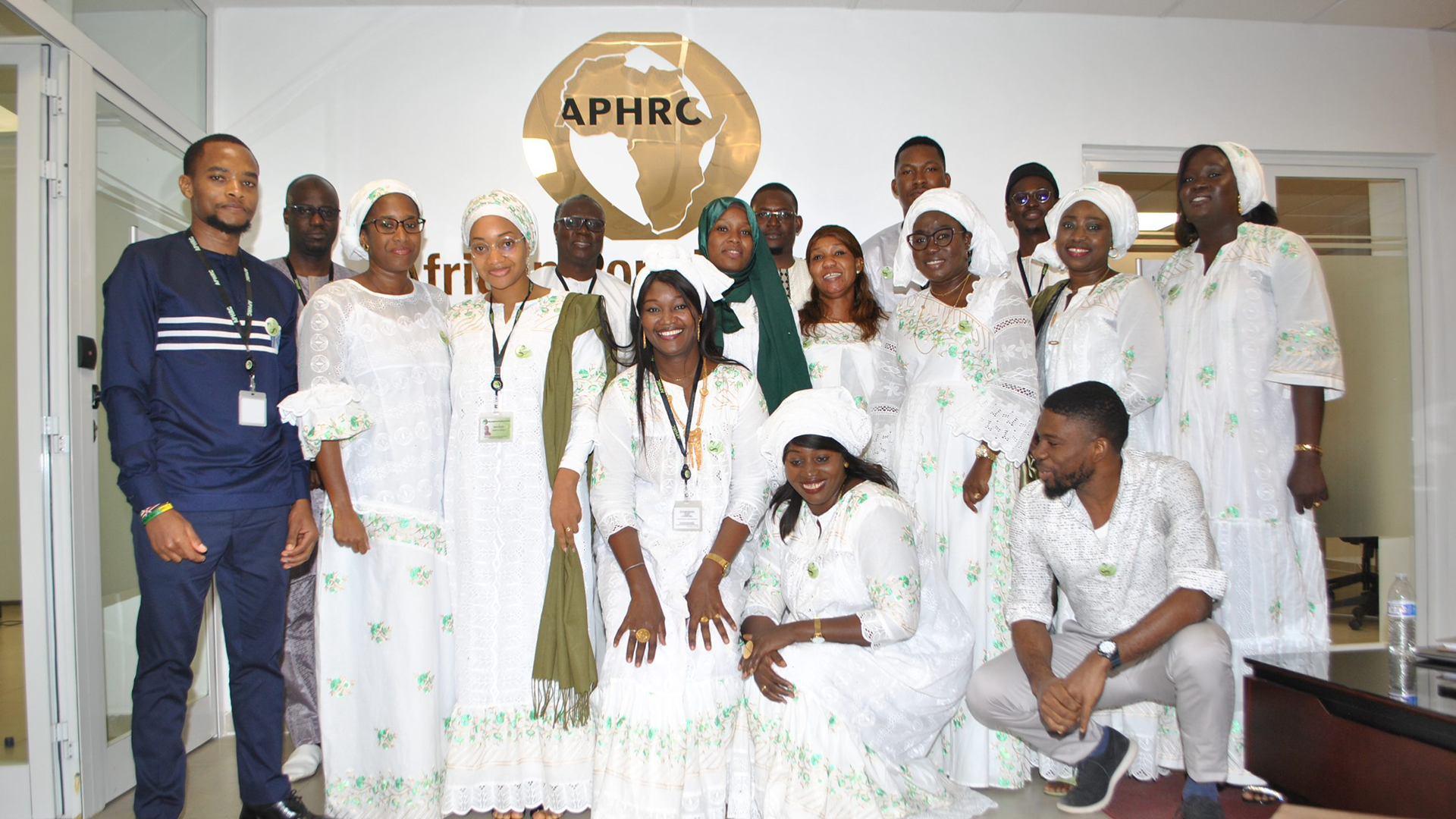APHRC West Africa Regional Office
Advancing health, development and well being in West and Central Africa
Overview
The APHRC West Africa Regional Office, based in Dakar, was launched in 2019. This is the Center’s second physical office in Africa. WARO is a leading research institution dedicated to advancing health, development, and well-being across the West and Central African region. As an extension of APHRC’s pan-African mandate, WARO is pivotal in generating evidence that informs policies and programs, driving sustainable development in a region marked by rapid demographic shifts, urbanization, and the growing impacts of climate change.

About APHRC West Africa Regional Office
Core Focus Areas
APHRC WARO’s work is structured around three key thematic areas, each addressing critical aspects of health and development in West & Central Africa:
- Environment, Climate, and Health
- Demographic Dynamics and Population Health
- Health and Data Systems
Environment, Climate, and Health
Environment and health issues are critical concerns for West and Central Africa. These issues, influenced by socioeconomic conditions and adversely affected by climate change, include access to safe drinking water, sanitation and hygiene, water management, soil and air pollution, vector control, management of chemicals and waste, workplace health and safety, and children’s environmental health. WARO’s research in this area focuses on:
- Social and Environmental Determinants of Health: Exploring how environmental factors such as air and water quality, housing conditions, and access to green spaces impact health outcomes across different communities.
- Health Impacts of Climate Change: Investigate how climate change exacerbates health risks, particularly for vulnerable populations, and identify adaptive strategies to mitigate these impacts. This includes generating evidence on heat-related health risks, air pollution and health, WASH disaster risk and resilience, and the food system and sovereignty.
Demographic Transition, Fertility, Urbanization, and Migration
West Africa is experiencing significant demographic changes that present both opportunities and challenges. WARO’s research in this area focuses on:
- Demographic Transition: Analyzing fertility, mortality, and population growth trends and their social and economic development implications.
- Urbanization: Understanding the rapid urbanization process, its impact on health and livelihoods, and how to manage urban growth sustainably.
- Migration: Studying internal and cross-border migration patterns, the health challenges migrants face, and the effects of migration on sending and receiving communities.
Health and Data Systems
Robust health systems are the backbone of sustainable development. WARO’s research in this area focuses on:
- Health Financing and Governance: Evaluating the effectiveness of health financing mechanisms and governance structures, focusing on equity, efficiency, and sustainability. This includes examining the role of universal health coverage and innovative financing models in improving access to healthcare.
- Health Data Monitoring: Strengthening the capacity of health systems to collect, analyze, and utilize data for decision-making. WARO supports the development and implementation of robust health information systems that enhance accountability and improve health outcomes.
Approach
A commitment to characterize APHRC WARO’s approach:
- Rigorous, Contextualized Research: We employ cutting-edge methodologies and leverage local knowledge to ensure our research is relevant, reliable, and applicable to the West African context.
- Policy Engagement: We actively engage with policymakers, providing them with the evidence needed to make informed decisions that improve health and well-being across the region.
- Capacity Building: We invest in building the skills and expertise of local researchers and institutions, fostering a generation of leaders equipped to address the health and development challenges of West and Central Africa.
- Strategic Partnerships: Collaboration is at the heart of our work. We partner with governments, NGOs, academic institutions, and international organizations to amplify our impact and drive positive regional change.
Related Projects
- On Going
- 01/01/2024
- 31/12/2027
- WARO



















